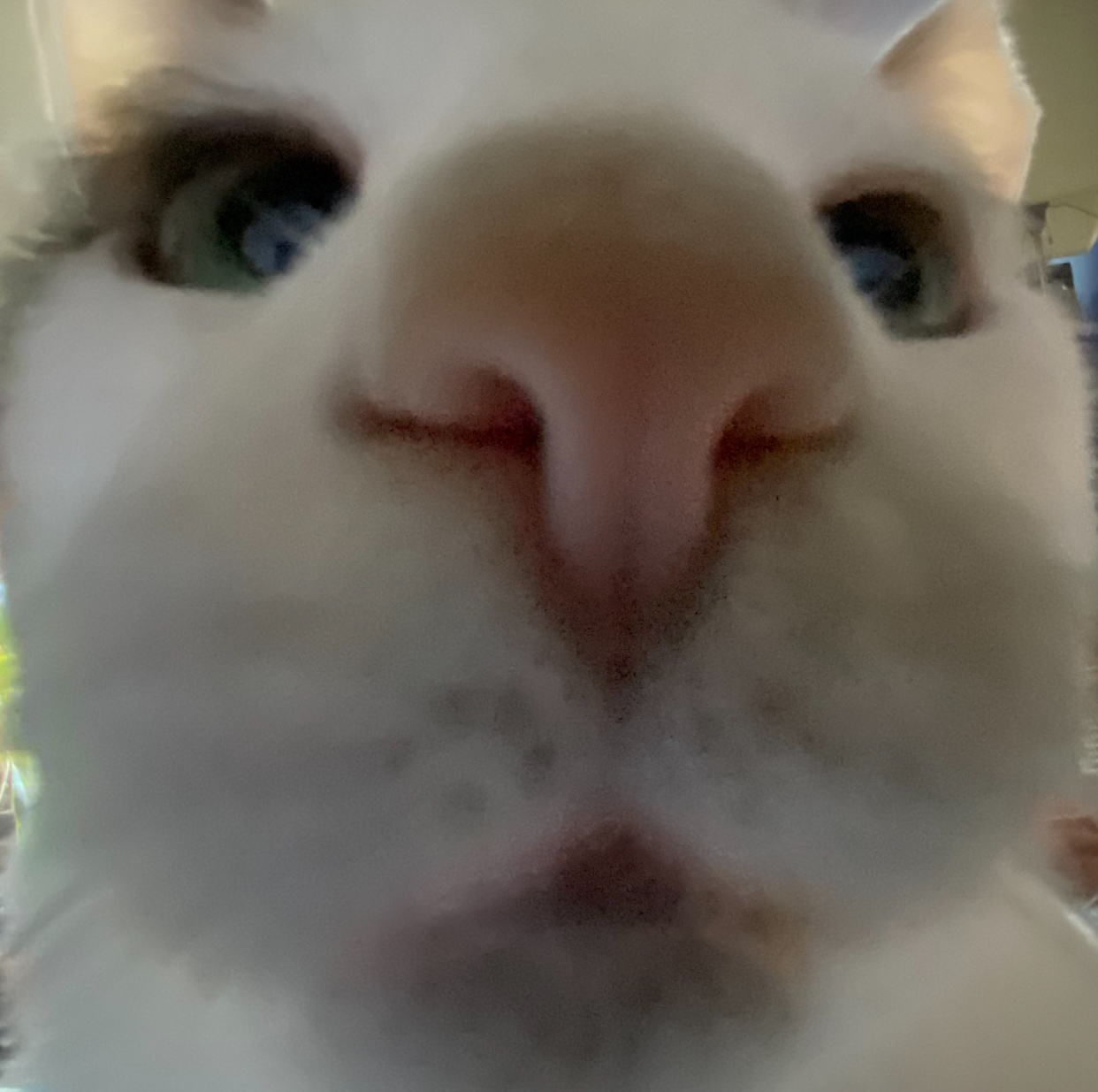A quick search suggests that the average American uses about 1.3 pounds of honey per year. If I’m 40 years old, and guess that I might live to be 80, that’s only 52 pounds of honey, which I could easily buy in bulk. Honey doesn’t expire, and even assuming the price doesn’t skyrocket from bee die-offs, inflation alone will make the price go up over time.
Does it make sense to buy all the rest of the honey I’ll ever need for the rest of my life, right now?
Beekeeper here. I won’t comment on whether or not you should. But since I know a little about storing honey, here are some things to consider:
If you do this, you need to make sure it’s sealed in airtight containers.
Part of what gives honey its antimicrobial properties (and long shelf life) is its low moisture content. But it’s hygroscopic and will pull moisture directly from the air if exposed. After it pulls enough moisture, it can ferment, grow bacteria, or otherwise not be fit for normal consumption.
Also, honey can crystallize over time. This doesn’t mean it’s bad, but in order to re-liquify it, you’ll need to heat it. So consider your storage container size and material carefully.
That said, 52 lbs is less than a 5 gallon bucket full (at roughly 12 lbs / gallon), so it shouldn’t take an incredible amount of space if you choose to do it. Or, in smaller portions, a quart mason jar will hold about 3 lbs. So 2 cases (12 jars each) would exceed your quantity requirements, and be more manageable than a 60lb bucket.
Also if you can buy it in bulk at wholesale prices, it will be cheaper. Retail can be anywhere from $5-$20 per pound (depending on what/where) whereas the last I checked, wholesale prices were more like $1.50 - $3.50 per pound, depending on quantity.
Hope that helps.
You da MBP
Where do you recommend wholesale purchases from?
I’d start with local apiaries and/or small/mid scale beekeepers.
The trick will be finding one that will let you buy a smaller quantity (relatively speaking - you probably don’t want multiple 55 gallon drums of honey) at near-wholesale prices.
This might be tough, because small scale (hobbyist or side-gig) beekeepers often charge a premium because they’re not producing a lot, and value the hard work they put into what they did get.
On the flip side, larger outfits will likely already have contracts with a reseller, and may not want to bother with selling a mere 50-100 lbs as a one-off.
A good place to ask around might be a local beekeeping club/meetup. It would at least let you meet some of your local beeks, and maybe determine which are retail-only and which do wholesale.
i would not consider buying this much honey, personally, but i really appreciate your comment. it is so informative.
thank you! (sincere)
Does anyone else REALLY want this crazy honey buyer to get his honey from this knowledgeable beekeeper? It’s a Lemmy matchmaking story!
Unfortunately, I’ve really scaled back my number of hives and now only get enough honey to keep my immediate family supplied.
But I appreciate the sentiment.
I buy a 5 gallon bucket of honey once every 6ish years. It’s one of the only sweeteners my wife can have so we use it in everything that needs a sweeter taste. I fill small 20oz jars with it and seal the bucket back up. It’s a good investment because you can get it much much cheaper. I buy mine from Sleeping bear farms in Michigan.
Is it dangerous? What if the bears wake up?
obviously you have to wait for them to go lookin’ for pic-a-nik baskets then.
They hibernate for quite a while. Plenty of time to steal their honey jars.
Honey can expire if not stored right.
So, if it’s left?
That’s an old wives’ tale. Honey never spoils, it crystallizes. All you need to do is heat it to liquify. 3000 year old honey was found in an Egyptian tomb, and was still edible.
https://realrawhoney.co.uk/blogs-real-raw-honey-honey-in-ancient-egypt/
Haven’t seen this mentioned yet so:
The honey may not expire, but the container you store it in could. I’d be very concerned about plastic disintegrating and/or leeching into the honey. Glass would be better for that, but it’s also really heavy compared to plastic, so you’d need more, smaller containers instead of one giant tub.
I would agree with you but I’m like 25% microplastic (and 8% regular plastic) so I figure what harm will be done has already been done.
The bee die-offs, that one typically hears about, has nothing to do with honey bees. Honey bees don’t show any signs of going extinct. Its may of the other bee species, which are dying off. And that is bad because of the species liking different specific plants, which often rely on this bee species to be pollinated.
Some of this is because domesticated bees are filling the roles wild bees take. Some is temperature based, like bees just die at something like 55 or 60 degrees C. Hooray climate collapse!
Yeah - a lot of “save the bees” narratives omit the fact that honey bees are not indigenous to the US and displaced some species.
We should be just as concerned for wasps, who are essential to pollination.
i was with you until you got to the murder flies.
Honey doesn’t expire but it crystalises giving it a different texture. You’d also have to check in on what happens to decades old honey
Not a lot. there was some honey in the tomb of an Egyptian mummy and they are it when they excavated him.
As a kid we had a neighbor that ran a bee-brothel and had hives all over the region. Since his hives would just sit on un-used corners of farmland, he would offer some honey annually as ‘rent’. (He was also generous with his boat so a couple waterskiing trips were also on the table).
We (2 parents, 4 kids) would get a 5 gallon can of honey every other year or so.
That has been over 45 years now and my father is still working through that supply. We put it in sealed mason jars and it has remained good all this time.
Honey can change consistency, depending on how it is packaged and stored. In addition, you have to consider the cost and risk of storing it. But if you think the bees are going to die off, it could be a lucrative investment.
I clearly use more than the average amount of honey then. Most of it to make mead.
No.
deleted by creator
Having had a 50lb bucket of honey I can tell you that honey use goes up dramatically because you say to yourself “well I have so much I can just use it for this, and that, and a little more on my toast…” and then friends come around asking for a little here and a little there. Unless you can be super disciplined in a way that I cannot, 50 pounds will not last more that a couple years.
Once Honey 2.0 comes out in 20 years, your stock in Honey 1.0 will be worthless :(
Honey can technically expire. If it crystalizes, some portions of it can become more diluted, leading to a low enough osmotic pressure for bacteria and fungi to exist. If you do buy in bulk, check your local universities. One in my area does honeybee research and sells bulk honey from their bee lab at cheaper prices than any of the private beekeepers. I use it to make mead.
All the honey I’ve ever bought has crystallized before I could get through the small bottle. Yeah, you can heat it, it’s a pain to have to deal with when I just want to use it. I’d rather buy what I need fresh.







